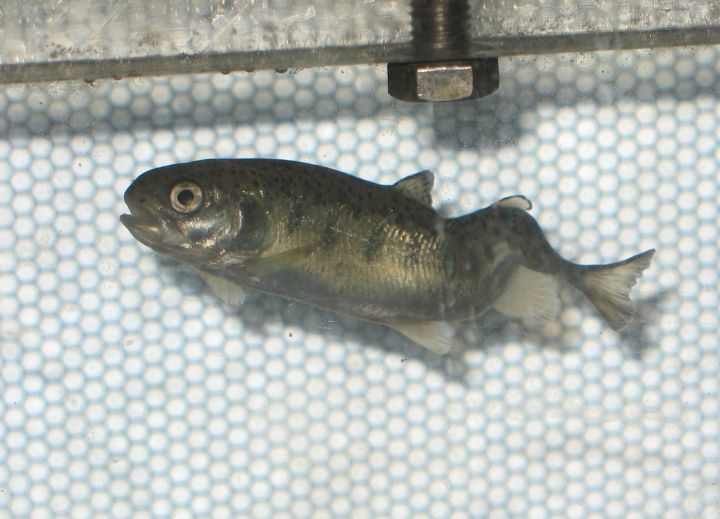Whirling disease has been detected in fish in the Oldman watershed, according to the Canadian Food Inspection Agency (CFIA).

The deadly fish disease was found in three locations in the Crowsnest River, and the CIFA have declared an infection in all streams, rivers, creeks, lakes and rivers that feed into the Oldman River, including those in Waterton Lakes National Park, the CFIA said in a release.
Whirling disease is a microscopic parasite that attacks the cartilage in fish skulls and spines, causing the fish to swim erratically — or whirl. Eventually, the fish die as the disease makes it difficult for them to feed and avoid predators.
The disease attacks salmanoids like salmon, trout, whitefish and char.
Whirling disease isn’t harmful to humans or animals that eat infected fish.
The CFIA also confirmed whirling disease had been detected in the Bow River in February, and in Crowsnest River in April, however the agency says the new detections “should not be taken as evidence the disease is spreading.”
How to prevent the spread?
The Alberta Environment Department is using the opportunity to “stress the importance” of preventing the spread of whirling disease and other invasive species.
- Ont. First Nation calls for chemical plant to be shut down amid ‘dangerously high’ benzene levels
- Ottawa looks to launch national flood insurance program within 12 months
- Nova Scotia scraps spring bear hunt idea, public ‘very divided’ on issue
- Ecuador rations power, declares emergency as drought limits hydro output
The government says all motorized boats should pull their drain plugs during transportation, and that bait fish should not be released.
The government’s “whirling disease action plan” focuses on:
- Detection and delineation: Working with the CFIA to determine the full extent of whirling disease. A whirling disease committee has also been established to address the long-term management of the disease.
- Education: Public engagement, work with stakeholders and posting of educational materials to prevent the spread of whirling disease. This includes the province’s Clean, Drain, Dry public awareness campaign.
- Mitigation: To receive CFIA permits to stock fish from the infected area to locations outside of the infected zone, all Class A fish farms and provincial aquaculture facilities must implement approved biosecurity protocols and test negative for whirling disease.
The government says they do not plan to make changes to fishing regulations in the Oldman River basin.




Comments